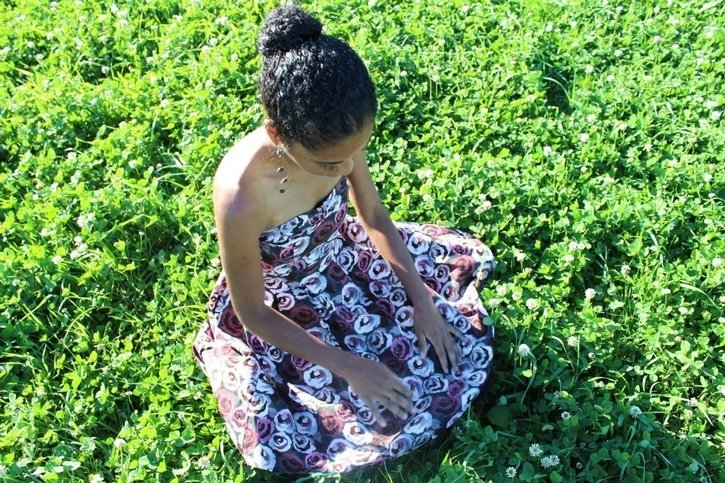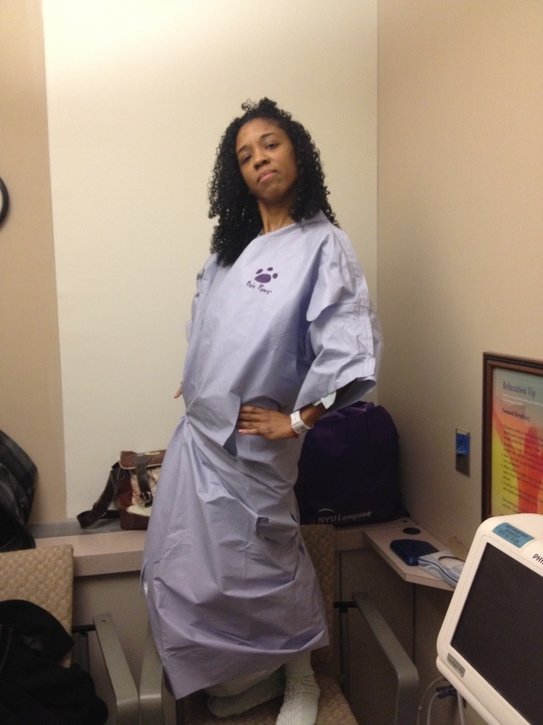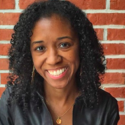Countless friends and family members showered me with support and words of kindness when I got diagnosed with breast cancer three-and-a-half years ago. All were shocked, but some were either at a loss or did things that were just not helpful at all.
Two weeks ago, I learned the cancer has returned. As I recover from last week’s lumpectomy, I’m reminded of what things made me feel better and what comments I could do without. In honor of Breast Cancer Awareness Month, here are seven things that friends should never tell friends who are struggling with the disease.
Don't mention people who have died from cancer.
Mentioning so-and-so died from cancer isn't helpful. Thoughts about mortality were already swimming through my head, so having death shoved in my face during this time just scared me even more.
Don't make empty gestures.

Platitudes and promises along the lines of "Everything will be fine," "You don't even look sick," or "You shouldn't worry yourself over it," might come across as dismissive.
Yes, you want to cheer me up, but remember that you can't promise that things will turn out perfect or guarantee that the test results I'm waiting on won't deal another devastating blow. Instead, acknowledge that this whole situation is scary—and remind me that I'm not fighting this battle alone.
Let me drive the show.
Chances are a person with cancer is experiencing a rollercoaster of emotions. So, if I want space, back away for a bit and let me know that you're just a text or phone call away. If I want to talk about my health or any fears I have about my diagnosis, try steer away from making personal judgments.
Respect any medical choices we've made about treatment.
Treatment is a truly personal choice that no one else gets to chime in on. Don't share stories about a person who died shortly after receiving chemotherapy or any ignorant remarks about various types of treatment. Understand that every case is entirely different, people respond differently to different methods, and there's no room for fear or old wives' tales.
You will also want to hold off on your offers of alternative medicines, special teas and herbs, or other spiritual rituals unless we have explicitly requested it. They might negatively interact with treatment or medication.
Don't tell me I should be thankful for cancer.

Saying "cancer will be a blessing in disguise" or "your diagnosis will be a catalyst for change" is grounds to get punched in the face. While there are many who do re-evaluate their priorities after a life-altering event, these comments make me feel like I should be thankful that cancer barged into my life. These comments also imply that cancer should be credited for any positive changes I made after my diagnosis.
Be sure to be kind to family members, caregivers, and partners.
Caring for and worrying about a loved one can be mentally, physically, and emotionally draining and comes with an inner pressure to put on a brave face. Let them know you're around if they need an ear, a hand, or just a safe space to vent before carrying on.
It's OK to not know what to do.
If you don't know what to say or do for your friend, it's totally OK to ask, "What do you need?" No one is expecting you to have read a "Dealing with Cancer 101" handbook. Being honest and genuine about your wish to comfort without being inadvertently insensitive is always appreciated.




